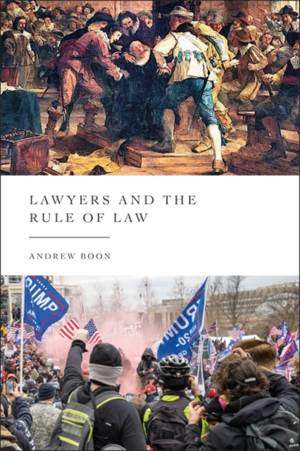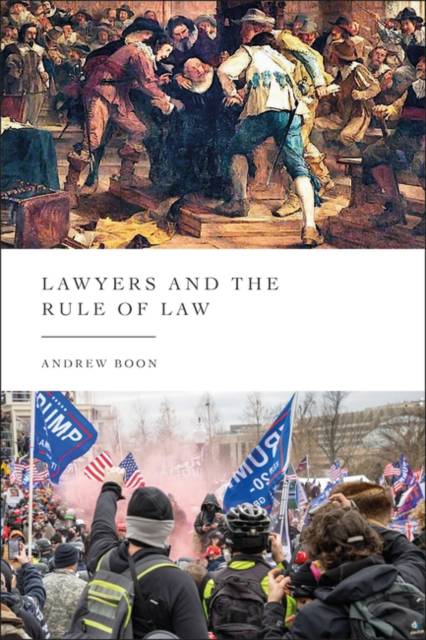
- Afhalen na 1 uur in een winkel met voorraad
- Gratis thuislevering in België vanaf € 30
- Ruim aanbod met 7 miljoen producten
- Afhalen na 1 uur in een winkel met voorraad
- Gratis thuislevering in België vanaf € 30
- Ruim aanbod met 7 miljoen producten
Zoeken
Omschrijving
This book examines lawyers' contributions to creating and maintaining the rule of law, one of the pillars of a liberal democracy. It moves from the European Enlightenment to the modern day, exploring the role of judges, government lawyers, and private practitioners in creating, defining, and being defined by, the demands of modern society.
The book is divided into 4 parts representing the big themes. The first part considers lawyers' contribution to the growth of constitutionalism, the second, the formulation of roles and identities, and the third the formation of values. The fourth part focuses on the challenges faced by lawyers and the rule of law in the past 50 years, the neoliberal period, and how they challenge both conceptions of lawyers and the rule of law. Each part is illustrated by defining events, from the execution of Charles I, through the Nuremberg Trials, to the insurrection by supporters of Donald Trump in January 2021.
Although the focus is on England and Wales, parallel developments in other jurisdictions, Australia, Canada, New Zealand, and the USA, are considered. This allows analysis of lawyers' historical and contemporary engagement with the rule of law in jurisdictional systems based on the Common Law. Each chapter is thematic, but the passage through the book is broadly chronological.
The book is divided into 4 parts representing the big themes. The first part considers lawyers' contribution to the growth of constitutionalism, the second, the formulation of roles and identities, and the third the formation of values. The fourth part focuses on the challenges faced by lawyers and the rule of law in the past 50 years, the neoliberal period, and how they challenge both conceptions of lawyers and the rule of law. Each part is illustrated by defining events, from the execution of Charles I, through the Nuremberg Trials, to the insurrection by supporters of Donald Trump in January 2021.
Although the focus is on England and Wales, parallel developments in other jurisdictions, Australia, Canada, New Zealand, and the USA, are considered. This allows analysis of lawyers' historical and contemporary engagement with the rule of law in jurisdictional systems based on the Common Law. Each chapter is thematic, but the passage through the book is broadly chronological.
Specificaties
Betrokkenen
- Auteur(s):
- Uitgeverij:
Inhoud
- Aantal bladzijden:
- 576
- Taal:
- Engels
Eigenschappen
- Productcode (EAN):
- 9781509963553
- Verschijningsdatum:
- 18/04/2024
- Uitvoering:
- Paperback
- Formaat:
- Trade paperback (VS)
- Afmetingen:
- 156 mm x 234 mm
- Gewicht:
- 793 g

Alleen bij Standaard Boekhandel
+ 206 punten op je klantenkaart van Standaard Boekhandel
Beoordelingen
We publiceren alleen reviews die voldoen aan de voorwaarden voor reviews. Bekijk onze voorwaarden voor reviews.











